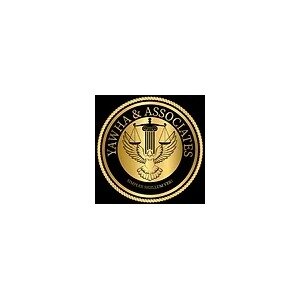Best International Trade Law Lawyers in Vanuatu
Share your needs with us, get contacted by law firms.
Free. Takes 2 min.
Or refine your search by selecting a city:
List of the best lawyers in Vanuatu
About International Trade Law in Vanuatu
International Trade Law in Vanuatu is a crucial component of the nation's economic structure, geared towards regulating how trade is conducted across its borders. This body of law encompasses a wide array of regulations and treaties that influence the import and export of goods and services, ensuring compliance with both local statutes and international obligations. As a member of international organizations such as the World Trade Organization (WTO), Vanuatu participates in global trade activities, which are governed by international trade policies and agreements aimed at fostering fair trading conditions.
Why You May Need a Lawyer
Engaging a lawyer specializing in International Trade Law can be essential for several reasons. Common situations where you may require legal assistance include: resolving trade disputes, navigating complex trade regulations, adhering to export and import compliance, understanding free trade agreements, and dealing with tariff classifications. Lawyers can provide guidance on minimizing legal risks, ensuring the proper documentation is in place, and representing your interests in arbitration or litigation related to international trade issues.
Local Laws Overview
The legal framework governing International Trade in Vanuatu includes key aspects such as the Customs Act, which regulates the importation and exportation procedures and duties imposed on goods. Another significant piece of legislation is the Import Duties (Consolidation) Act which outlines duty rates and exemptions. Additionally, Vanuatu's adherence to international agreements like the Trade Facilitation Agreement (TFA) facilitates smoother trade transactions through streamlined customs procedures. It's important for businesses engaging in cross-border trade to stay informed of both domestic and international law changes.
Frequently Asked Questions
What is the main legal framework governing international trade in Vanuatu?
The main framework includes the Customs Act, the Import Duties (Consolidation) Act, and various international agreements that Vanuatu is a party to, such as the Trade Facilitation Agreement under the WTO.
How does Vanuatu benefit from WTO membership?
WTO membership provides Vanuatu access to the global market, fosters trade liberalization, and ensures non-discriminative treatment by other WTO members, helping boost economic growth.
What are typical challenges in international trade for businesses in Vanuatu?
Typical challenges include compliance with diverse international standards, handling tariff and non-tariff barriers, and navigating the complexities of customs procedures.
Are there specific export incentives in Vanuatu?
Yes, Vanuatu offers various incentives to promote exports, including duty reliefs under specific conditions. Consulting a trade lawyer can provide clarity on available incentives.
What role do trade agreements play in Vanuatu’s international trade law?
Trade agreements play a critical role by establishing the rules for trade with partner countries, reducing trade barriers, and providing a framework for dispute resolution.
Do foreign businesses need to register in Vanuatu to trade?
Foreign businesses typically need to comply with certain registration requirements when establishing a physical presence to trade in Vanuatu, but not necessarily for pure export purposes.
How are trade disputes typically resolved in Vanuatu?
Trade disputes can be resolved through negotiation, arbitration, or through the court system, depending on the nature of the dispute and agreements in place.
What is the role of customs in international trade in Vanuatu?
The customs department in Vanuatu is crucial in regulating and monitoring the flow of goods, ensuring appropriate duties are paid, and preventing illegal trade activities.
How can businesses ensure compliance with Vanuatu's trade laws?
Businesses can ensure compliance by staying updated on legal changes, consulting with trade legal experts, and ensuring proper documentation for all trade activities.
What documents are necessary for trade in Vanuatu?
Documents such as commercial invoices, packing lists, bills of lading, and relevant certificates of origin are typically required for trade transactions.
Additional Resources
For further assistance, consider reaching out to the Vanuatu Investment Promotion Authority (VIPA) or the Vanuatu Chamber of Commerce and Industry. These organizations provide support and information on trading regulations and opportunities.
Next Steps
If you need legal assistance in International Trade Law in Vanuatu, it is advisable to consult a lawyer who specializes in this field. Start by researching legal firms and attorneys with a strong background in international trade. You may also reach out to legal associations in Vanuatu that can recommend accredited legal professionals. Ensure the lawyer understands both local and international trade requirements to offer comprehensive guidance. Additionally, stay informed about changes in trade policies to make informed decisions.
Lawzana helps you find the best lawyers and law firms in Vanuatu through a curated and pre-screened list of qualified legal professionals. Our platform offers rankings and detailed profiles of attorneys and law firms, allowing you to compare based on practice areas, including International Trade Law, experience, and client feedback.
Each profile includes a description of the firm's areas of practice, client reviews, team members and partners, year of establishment, spoken languages, office locations, contact information, social media presence, and any published articles or resources. Most firms on our platform speak English and are experienced in both local and international legal matters.
Get a quote from top-rated law firms in Vanuatu — quickly, securely, and without unnecessary hassle.
Disclaimer:
The information provided on this page is for general informational purposes only and does not constitute legal advice. While we strive to ensure the accuracy and relevance of the content, legal information may change over time, and interpretations of the law can vary. You should always consult with a qualified legal professional for advice specific to your situation.
We disclaim all liability for actions taken or not taken based on the content of this page. If you believe any information is incorrect or outdated, please contact us, and we will review and update it where appropriate.
Browse international trade law law firms by city in Vanuatu
Refine your search by selecting a city.








